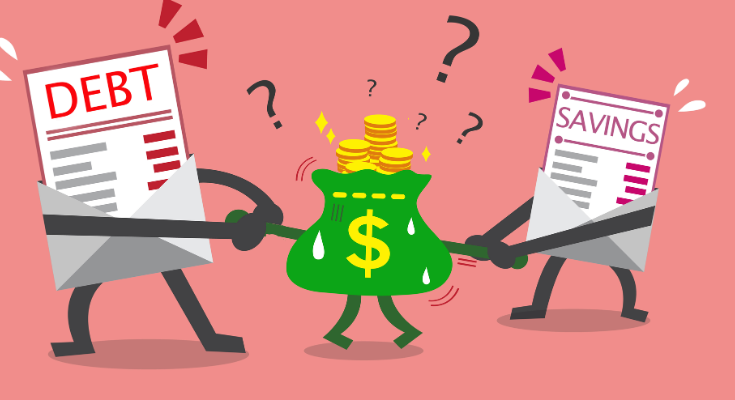Personal finance can seem daunting, especially if you’re just starting out. However, with the right approach and knowledge, managing your finances can become a rewarding and empowering experience. This guide will provide you with the top 10 personal finance tips to help you navigate your financial journey in 2024.
1. Set Clear Financial Goals
Establishing clear financial goals is the first step towards financial success. Think about what you want to achieve in the short term and long term. Short-term goals might include creating an emergency fund or paying off a specific debt, while long-term goals could involve saving for retirement or buying a home. Having a clear vision of your financial objectives helps you stay focused and motivated.
2. Create and Stick to a Budget
Budgeting is a fundamental aspect of personal finance. Start by tracking your income and expenses to understand where your money is going. Categorize your spending and identify areas where you can cut back. A budget helps you control your spending, save more effectively, and avoid unnecessary debt.
3. Build an Emergency Fund
An emergency fund acts as a financial safety net. Aim to save at least three to six months’ worth of living expenses in a readily accessible account. This fund will protect you from unexpected financial setbacks such as medical emergencies, car repairs, or sudden job loss.
4. Pay Off High-Interest Debt
High-interest debt, such as credit card debt, can quickly spiral out of control. Prioritize paying off debts with the highest interest rates first. This strategy, known as the debt avalanche method, saves you money on interest payments and helps you become debt-free faster.
5. Save for Retirement Early
The power of compound interest makes saving for retirement early highly beneficial. Contribute to retirement accounts like a 401(k) or IRA as soon as possible. Even small, consistent contributions can grow significantly over time, ensuring you have a comfortable retirement.
6. Invest Wisely
Investing can help grow your wealth over time. Diversify your investments to spread risk across different asset classes such as stocks, bonds, and real estate. Consider low-cost index funds or ETFs, which offer broad market exposure with lower fees. Educate yourself about investing or consult a financial advisor to make informed decisions.
7. Live Below Your Means
Living below your means involves spending less than you earn. This practice allows you to save and invest more, helping you build wealth over time. Focus on needs versus wants and make mindful spending choices. This doesn’t mean you should never enjoy life, but finding a balance between spending and saving is crucial.
8. Continuously Educate Yourself
Financial literacy is an ongoing journey. Stay informed about personal finance topics by reading books, attending workshops, or following reputable financial blogs and podcasts. The more you learn, the better equipped you’ll be to make sound financial decisions.
9. Use Technology to Your Advantage
Numerous apps and tools are available to help you manage your finances. Budgeting apps like Mint or YNAB (You Need A Budget) can track your spending and savings goals. Investment platforms such as Robinhood or Betterment simplify investing for beginners. Leveraging technology makes managing your finances more accessible and efficient.
10. Seek Professional Advice
Sometimes, navigating financial decisions requires expert guidance. A financial advisor can provide personalized advice tailored to your unique situation. Whether you need help with retirement planning, tax strategies, or investment decisions, seeking professional advice can offer valuable insights and peace of mind.
FAQs
What is the most important personal finance tip for beginners?
Setting clear financial goals is arguably the most crucial tip. Goals provide direction and motivation, making it easier to create a budget, save, and invest effectively.
How much should I save in an emergency fund?
Aim to save three to six months’ worth of living expenses. This amount provides a cushion to cover unexpected expenses without resorting to high-interest debt.
Why is it important to pay off high-interest debt first?
High-interest debt can quickly accumulate, leading to more significant financial strain. Paying off high-interest debt first reduces the amount you spend on interest, freeing up money for savings and investments.
When should I start saving for retirement?
Start saving for retirement as early as possible. The earlier you begin, the more time your money has to grow through compound interest, resulting in a larger retirement fund.
How can I start investing with little money?
Many investment platforms allow you to start with minimal amounts. Consider low-cost index funds or ETFs, which offer diversification and lower fees. Consistent, small contributions can accumulate over time.
What are some effective budgeting tools?
Popular budgeting tools include Mint, YNAB (You Need A Budget), and PocketGuard. These apps help track expenses, set savings goals, and provide insights into your spending habits.
How can I improve my financial literacy?
Improving financial literacy involves continuous learning. Read personal finance books, follow reputable blogs and podcasts, and attend financial workshops or seminars. Financial education equips you to make informed decisions.
Is it necessary to consult a financial advisor?
While not mandatory, consulting a financial advisor can be beneficial, especially for complex financial situations. Advisors provide expert advice on retirement planning, tax strategies, and investment decisions, tailored to your specific needs.
What is the difference between a 401(k) and an IRA?
A 401(k) is an employer-sponsored retirement plan, often including employer matching contributions. An IRA (Individual Retirement Account) is a personal retirement savings account. Both offer tax advantages but have different contribution limits and rules.
How can technology help me manage my finances?
Technology offers numerous tools for managing finances, from budgeting apps to investment platforms. These tools simplify tracking expenses, setting financial goals, and making investment decisions, making personal finance more accessible.



